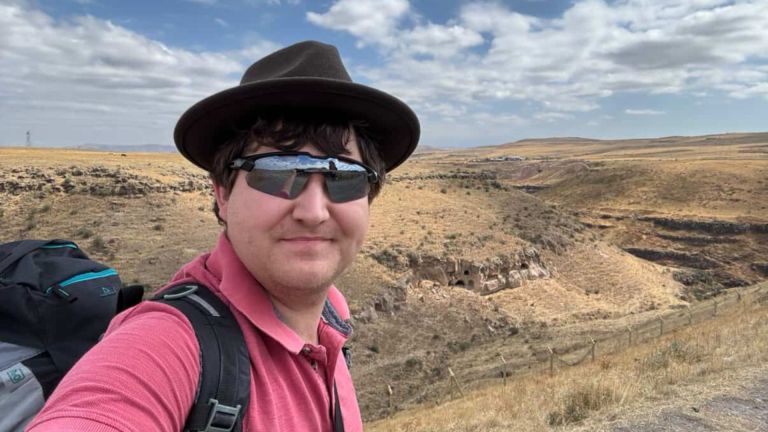This was more common among people with mental health conditions and invisible disabilities.
Two in five people with a psychiatric disorder believe that disability benefits assessors will not be able to assess their health condition accurately, followed by 39% of those with a sensory disability and 38% of people with anxiety and depression.
The DWP found that disability benefits assessments were “a significant event for participants which they found preparing for, and attending, stressful”.
It comes as the government is considering reforms to the disability benefits system – including plans to tighten the work capability assessment which could see hundreds of thousands miss out on support by 2028/2029.
The Conservative government also proposed changing PIP to restrict the eligibility criteria and replace regular payments with one-off grants and vouchers. Labour has said it will outline its “own approach to social security in due course”, but the uncertainty is leading to anxiety for people.
As these DWP reports show, people are already facing anxiety because of the disability benefits process.
Advertising helps fund Big Issue’s mission to end poverty
Six in ten people said they were concerned about the disability benefits assessment on the day, which was more likely among those who were having a face-to-face assessment.
Nine in ten agreed that the assessor treated them with respect and dignity – but they were less likely to agree that the questions asked were relevant and appropriate (74%) or that they allowed them to fully explain the impact of their condition (70%).
People reported feeling uncomfortable speaking about their health conditions. One man with multiple sclerosis (MS) said: “When asked questions like how far I can walk without crutches, I doubled the length that I could actually walk. I was embarrassed to reveal that I can’t walk far.
“MS can also lead to bladder control issues. It’s really hard to say that to a stranger.”
A claimant who had post-traumatic stress disorder after being physically attacked said he found it difficult to discuss how his health conditions impacted him because it brought back traumatic memories.
These were echoed by a domestic violence victim who told the Big Issue how she felt forced to explain details of the abuse she had suffered in her disability benefits system.
Advertising helps fund Big Issue’s mission to end poverty
One woman with autism said: “I felt intimidated to be honest. She wasn’t very comforting. She seemed like she didn’t want to be there.”
People can bring someone along to their disability benefits assessment – but nearly one in five people believed the DWP had not made it clear they could bring someone with them to the assessment.
One claimant said her assessor was “very abrupt and asked a lot of questions that I didn’t understand, so I kept looking at my fiancé and asking him to put them in a language that I could understand and sometimes he answered for me. I think she was getting a bit frustrated because I kept doing that”.
Around a third (35%) of people faced some form of challenge attending the assessment on the day.
That includes difficulties accessing the assessment centre due to their health condition, transport difficulties, or technical problems.
Researchers heard from participants with mobility challenges as well as anxiety who explained they found the requirement to attend face-to-face interviews “distressing”.
Advertising helps fund Big Issue’s mission to end poverty
They encountered a “handful of instances” where participants explained that they had been denied the opportunity for a remote assessment despite their expressed need for it.
“They reported how the stress of attending in person could set back their wellbeing for days, leading to periods of depression and low mood,” one report said.
Around 40% said there had been things in the assessment they wanted to explain but weren’t able to.
“I read the letter and there is a checklist with different struggles and I scored zero for all of them,” one person said. “That is not accurate of my struggles. I thought telephone was easier on my legs, but now I am thinking, it may have been better to go in. At least then they can physically see me struggling.”
In positive experiences, assessors adapted their process to meet people’s needs – such as not making them walk when they could already see they were unable to do so.
But that is not always the case. A man with chronic fatigue, whom the reporters have called John, said: “I am in bed 23.5 hours a day. The assessor note said, ‘I have decided you can walk 250 metres.’ I haven’t walked that far in one and a half years. I can only do 10 metres.”
Advertising helps fund Big Issue’s mission to end poverty
A 40-year-old man with chronic fatigue said. He was unable to read, watch TV, listen to music or eat on his own. It took three months to complete the PIP application because he had to use voice dictation and could only manage five minutes a day.
He is not alone in struggling with the application. People “described completing the form as physically and mentally exhausting, which for some led to heightened anxiety and, in some cases, had triggered periods of ill health”.
The most common reaction to the PIP application form was feeling overwhelmed.
“The whole process is degrading. It feels like people are judging you and the system is set up to refuse people,” one claimant said.
Ayla Ozmen, director of policy and campaigns at anti-poverty charity Z2K, said: “It’s very concerning to see that the DWP’s own research shows that the claims and assessment process for disability benefits is harming claimants’ health.
“As the report alludes to, these assessments have such high stakes because failing to access additional support often means having to live off the inadequate £91 per week standard allowance of universal credit for an indefinite period. If the government really wants to get more people into work, it needs to reform the punitive and stressful assessment process and increase the rate of universal credit.”
Advertising helps fund Big Issue’s mission to end poverty
Do you have a story to tell or opinions to share about this? Get in touch and tell us more. Big Issue exists to give homeless and marginalised people the opportunity to earn an income. To support our work buy a copy of the magazine or get the app from the App Store or Google Play.









